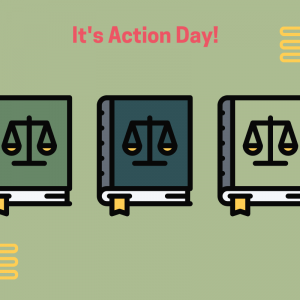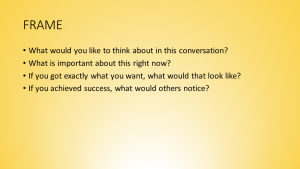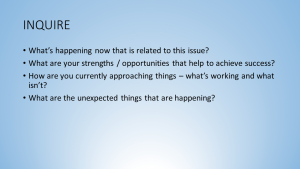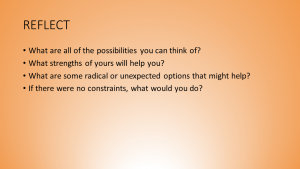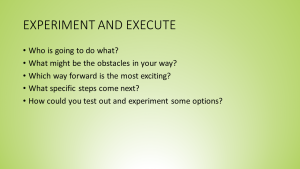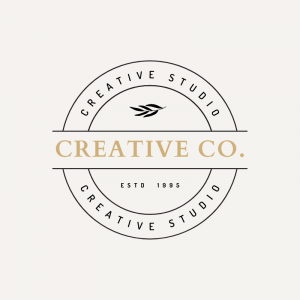Appendix: eFIRE: Exploring with Curiosity
eFIRE: Exploring with Curiosity
As project leaders and problem solvers, we need clear and open processes to address those sticky problems and challenges with an open mind and ideally without prior judgment or inherent biases.
Later in your workplace project journey, we will explore the concept of ‘hunches’. For the moment here are some processes that I want you to continue to explore.
Using eFire
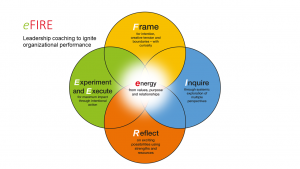
I know that you have explored the eFIRE approach in the context of leadership. I find it as useful to apply in the context of project leadership and problem-solving.
Here is a copy of the full model if you would to download to have at hand. eFire map
Here are some of the details that you likely explored in your leadership classes:
The context for executive and organisational coaching is becoming increasingly complex. The eFIRE Coaching Model is a unique evidence-based methodology for coaching that builds from existing tried-and-true models (such as GROW) to help coaches to centre coaching conversations and processes. It is uniquely designed for leaders and executive coaches who are working in messy situations where there are no obvious solutions to emerging challenges. The gives primacy to energy – drawn from values, meaning, purpose, and relationships.
Dr Geoff Abbott.
Activity
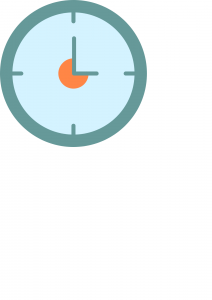 Use your time wisely. Halfway through the allocated time, we will remind you to swap roles.
Use your time wisely. Halfway through the allocated time, we will remind you to swap roles.
To get started, here is the complete set of questions. Take a moment to read each. You have all heard about ‘how you show up’; be thinking about how are you approaching this activity and be open, curious, and of, no judgment.
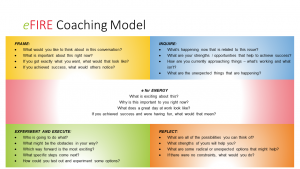
Read through each of the statements, get a ‘feel’ for what you might like to ask.
eFire Energy Prompts. You can use these at any time through the conversation.
What is exciting about this?
Why is this important to you right now?
What does a great day at work look like?
If you achieved success and were having fun, what would that mean?
FRAME:
REFLECT:
EXPERIMENT AND EXECUTE:
